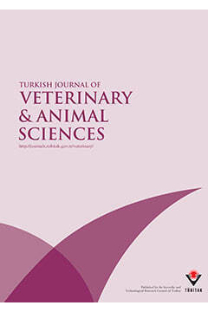Antalya Körfezinde Avlanan Baz› Yumuflakçalar ve Karideste Cu, Zn, Pb ve Cd ‹çeri¤i
Bu çal›flmada Antalya Körfezinde 2000 y›l› Ocak, fiubat ve Mart aylar›nda avlanan baz› yumuflakça türleri (Octopus vulgaris, Sepia officinalis, Loligo vulgaris) ve karidesin (Parapenaeus longirostris) yumuflak dokular›nda Cu, Zn, Pb ve Cd içeri¤i belirlenmifltir. Cu içeri¤i yumuflakçalarda 1,82-6,22 mg/kg, karideste ise 4,24-7,40 mg/kg, Zn içeri¤i yumuflakçalarda 10,95-21,52 mg/kg ve karideste 11,73-14,27 mg/kg aras›nda de¤iflmifltir. A¤›r metaller aras›nda insan sa¤l›¤› aç›s›ndan önemli olan Pb ve Cd yumuflakçalarda s›ras› ile 0,00-0,35 mg/kg ve 0,23-0,72 mg/kg, karideste ise Pb tespit edilemezken Cd 0,26-0,28 mg/kg olarak saptanm›flt›r. Sonuçlar incelenen türlerde analiz edilen a¤›r metaller aç›s›ndan henüz ciddi bir tehlike olmad›¤›n› göstermifltir.
Anahtar Kelimeler:
Antalya körfezi, yumuflakça, kabuklu, ağır metal
Cu, Zn, Pb and Cd Contents in Some Molluscs and Crustacea Caught in the Gulf of Antalya
In this study Cu, Zn, Pb and Cd contents were analysed in 3 molluscs (Octopus vulgaris, Sepia officinalis, Loligo vulgaris) and in one crustacean sample (Parapenaeus longirostris) caught in the Gulf of Antalya in January-March 2000. In molluscs, Cu content was determined to be between 1.82 and 6.22 mg/kg, and in crustacea, it was determined to be between 4.24 and 7.40 mg/kg. In the mollusc and crustacea specimens Zn content was 10.95-21.52 mg/kg and 11.73-14.27 mg/kg, respectively. Pb and Cd are the 2 most important heavy metals for human health. Pb content was 0.00-0.35 mg/kg and Cd content was 0.23-0.72 mg/kg in the soft bodies of the mollusc samples. Pb was not found in crustacea. However, the Cd content was between 0.26 and 0.28 mg/kg. The results showed that there was no serious hazard in the samples in terms of the heavy metals analysed.
Keywords:
Gulf of Antalya, mollusc, crustacea, heavy metal,
- ISSN: 1300-0128
- Yayın Aralığı: Yılda 6 Sayı
- Yayıncı: TÜBİTAK
Sayıdaki Diğer Makaleler
Growth and Milk Yield Traits of Türkgeldi Sheep
Karyotype Analyses of the Tench (Tinca tinca L., 1758) Living in Lake Mogan (Ankara)
Mustafa HAMALOSMANOĞLU, Mustafa KURU
Murat DEMİREL, Suphi DENİZ, İbrahim YILMAZ, Hüseyin NURSOY
Türkiye' de yetiştirilen değişik orijinli kazların verim özellikleri 1. Kuluçka Özellikleri
Determination of Contamination Sources during the Manufacturing of Yoghurt
Alper SEVİMLİ, Deniz MISIRLIOĞLU
Yield Traits of Geese of Different Origins Reared in Turkey I. Hatching Traits
Antalya Körfezinde avlanan bazı yumuşakçalar ve karideste Cu, Zn, Pb ve Cd içeriği
